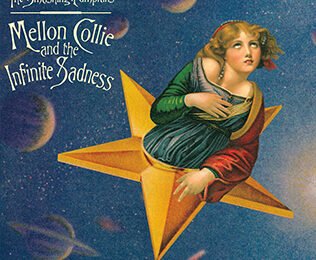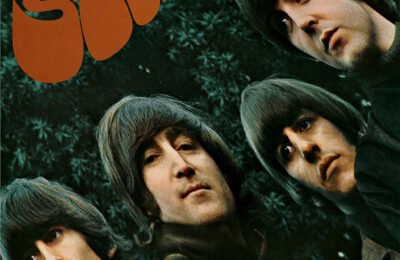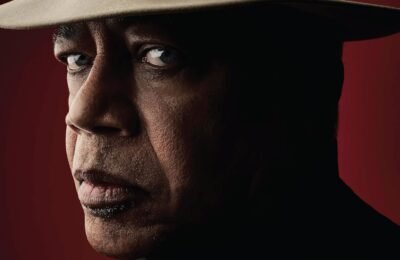Led Zeppelin defined rock. They Still do. Forty-five years after their amicable breakup, they still hold true as a staple of the genre. Jimmy Page, an era-defining guitarist, had a background as a studio musician. He proved himself capable of competing with the best and, before long, became a Yardbird, keeping company in the band that housed such legends as Eric Clapton and Jeff Beck. Unfortunately, this was fated to end, as in 1968, creative differences within the dwindling band led to Page searching for a new group with whom his unique style, energy, and creativity would thrive.
The Birth of a Legendary Band
Page and a studio bassist he knew, John Paul Jones, started their own band, eventually being joined by Robert Plant and John Bonham. Originally going by the name The New Yardbirds, the band was expected to crash and burn, leading The Who drummer Keith Moon to wittily dub them “Led Zeppelin,” as he believed they could only go down. Of course, we know now that they quickly rose to the top and, within a year, became a headliner band, playing concerts in every venue you care to mention.
The first four albums were named appropriately: Led Zeppelin I, II, III, and IV. Why come up with an album name when you don’t have to?
A Rock and Roll Pinnacle
The fourth album, released in 1971 after three stellar previous releases, would go on to be known as the pinnacle of rock and roll. After a slightly mixed reception to their third instalment, the band was determined to find their footing once again by delving into new areas of the genre while still including the raw rock power to which their fans had by now become accustomed.
This album, then, brought the already well-known and respected band to new heights, showcasing once more not only each of the talented members’ individual skill and virtuosity but also their ability to sync up more than any other band. Their timing and cues to one another allowed them to switch up the tone in a heartbeat.
The Mastery of Each Band Member
Bonham’s drumming was loud and bold, encompassing the sound of the whole band within a rounded beat, but if you tear it back, overlook the fills and tricks, he maintains a steady rhythm. He seemed to have a perfect internal metronome, allowing others to catch on in those moments when Plant took up a moment with a sustained note.
John Paul Jones was a known multi-instrumentalist. His ability to adapt to anything the band needed was astounding. While he prominently played bass, he was a musical chameleon, regularly rising to the occasion to provide mandolin, synth, keyboard, and more. I’m convinced that he could play every other instrument in the band if he wanted.
Not that he could replicate the pure brilliance of guitar work brought to us by Jimmy Page in this album. Jimmy was the musical genius who founded the band, in some ways, as a platform for him to exercise his creativity in ways he couldn’t do in the past. This album, more than any other, shows Jimmy’s exploration of his abilities as a guitarist.
Plant, too, gets to showcase his range in this album. His full vocal range is on display, proving that he was always the right choice for lead vocalist, despite early critics. It’s easy today to look back at this lineup and say, “Of course they worked; they’re Led Zeppelin.” But at the time, this was new territory, and they excelled in ways no one else had done before.
A Short but Timeless Album
The album was relatively short, with only eight songs. When an album is that short, each song really needs to be incredible for the album to go down in history like this one has.
Funnily enough, one of the major reasons for the breakup of the original Yardbirds was the manager’s dedication to the band producing quick, happy, three-minute pop songs, a sentiment that Page rebelled against. It’s nice to see, given the context, that each of the songs on this—the largest rock and roll band’s most popular album—is well over three minutes.
Especially their magnum opus, Stairway to Heaven, the studio recording of which comes out at a comfortable eight minutes and two seconds. It doesn’t feel like a long song to listen to, though. There’s no wasted breath; the melody progresses over longer phrases than their other riffs, allowing the ballad to play out in its own time. The guitar doesn’t overpower the song as a whole until the solo.
Plenty of people consider this to be the greatest guitar solo of all time, and rightly so. It’s rock, as you would expect, but it feels more communicative. It’s not a rapid jumble of notes that work well on paper—it’s a continuation of the music and feels like the pinnacle of the song, as a good solo should, instead of a short instrumental showcase between verses.
So, Stairway to Heaven has gone down in history as one of the best—if overplayed by guitarists in guitar shops—rock songs ever.
Beyond Stairway: The Rest of the Album
The rest of the album should not be overlooked, however, in your rush to appreciate this diamond in a pile of gemstones. Songs like Black Dog and Rock and Roll harken back to the Zeppelin on display prominently in their earlier albums. They exhibit that upbeat, riff-heavy rock the fans had grown accustomed to, letting us know that while they were trying something new, they weren’t going to stop making those familiar instant classics.
Unexpected Favorites: The Battle of Evermore & Going to California
Strangely, given my love of pure rock and roll, my favorite songs on the album were The Battle of Evermore and Going to California. Both of these are departures from the status quo for Zeppelin, being softer than usual, trading a rock and roll riff for a mandolin. Something about these two just made me smile.
The Battle of Evermore has clear Tolkien influences, discussing characters from The Lord of the Rings novels. This isn’t actually out of the ordinary for Zeppelin, who have more than a few songs with fantasy references, but this one felt more like an homage to the works as opposed to just using them as a subject in a rock song.
Going to California, on the other hand, feels rooted in longing—longing for a place and a person that only really exists in an idealized version of the world. Both of these are masterful songs that further demonstrate the band’s ability to be more subtle, diverse, and tactful in their songwriting than some might expect from a band often associated with heavy, steady riffs and strong vocals.
The End of an Era
While this was the peak of Zeppelin for me, they continued for eight more years, bringing out an array of other albums, most of which were better than a lesser band could ever hope for.
The band broke up amicably following the death of John Bonham. To me, this was the only thing to do. They weren’t just some band that could easily swap a member out for another skilled musician—they were the band. Both their songwriting ability and live performances showed huge appreciation for one another’s work. By early in their run, they had learned each other’s cues and could foresee each other’s tells, allowing for 30-minute live improv songs that felt rehearsed for years.
There’s scarcely a rock band on Earth that hasn’t, in some way or another, been influenced—directly or indirectly—by Zeppelin. The level of musicianship in this album won’t be seen again.



















